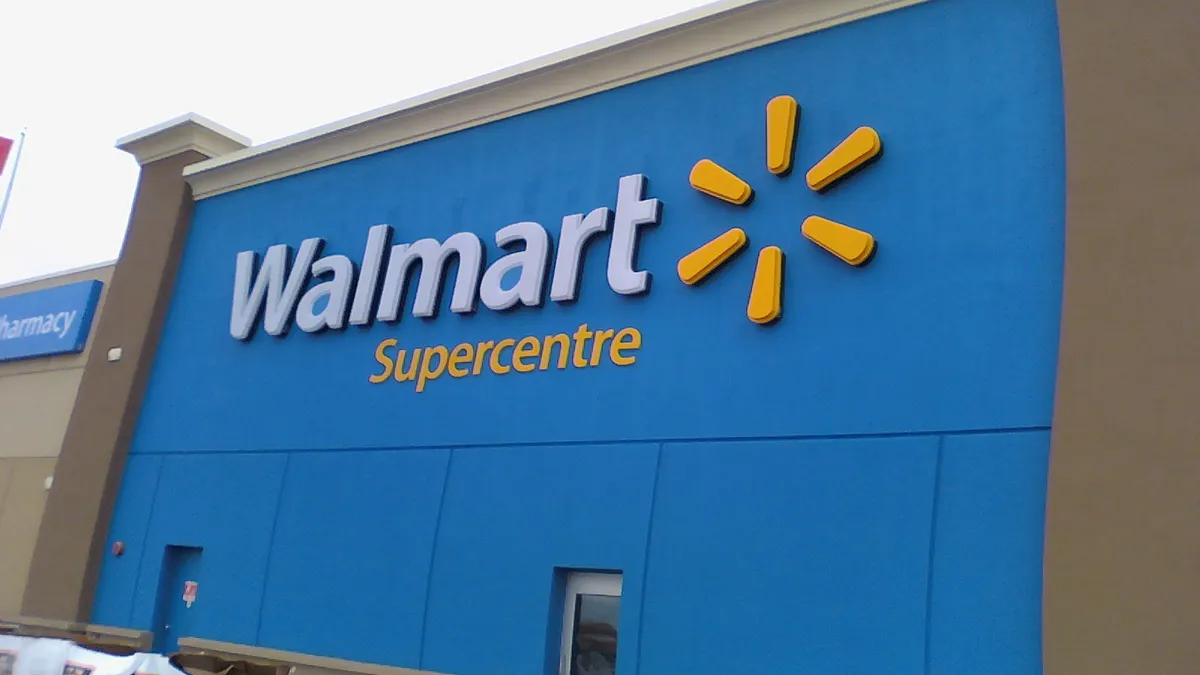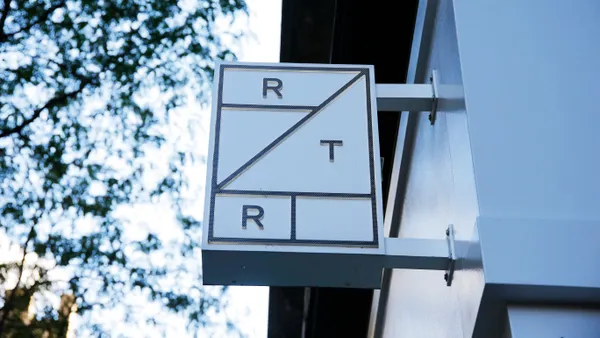Dive Brief:
-
Walmart is expanding its Uber partnership to add Orlando, FL and Dallas to its grocery delivery pilot, the retail giant said Monday in a company blog post.
-
Customers shop online or through a mobile browser at Walmart.com/grocery to build an online basket and place their order, selecting the most convenient time for delivery, according to the blog post, written by Walmart Vice President of E-commerce Operations Mike Turner.
-
Walmart workers pick the requested items, scan them to ensure an accurate and complete order and request an Uber to come to the store, pick up the order, and take it to the customer’s location, Turner said.
Dive Insight:
Walmart’s newly assertive omnichannel push is based squarely on providing customers with "always low prices" and convenience to save people both time and money, executives have emphasized in recent months.
Indeed, Turner began his blog post Monday describing a scene that has already begun in many parts of the country and will continue to spread as the summer wanes: "Your daily grind starts at 6 a.m. with a mad dash around the house as you ready the family for work and school," he wrote. "Anxiety sets in…what in the world are we going to have for dinner? Are there even groceries in the house? As you prepare for another chaotic day tomorrow, I hope you’ll feel confident knowing that we’re all about finding new ways for you to check 'grocery shopping' off your list a little faster – including making home delivery an option."
The brick-and-mortar giant has moved the needle on e-commerce significantly since its purchase of Jet. Along with a series of e-commerce acquisitions that helped boost sales by 60% in its most recent quarter, the company is increasingly blurring the lines between the in-store and online experience through initiatives including "Next Gen" layouts, in-store pickup kiosks for online orders, discounts on those orders not available to in-store customers and scan and go checkouts. Its Easy Reorder, which launched this summer, is reminiscent of convenience moves by other big players, including Amazon’s Dash buttons and Prime Pantry service and Target’s Restock pilot.
As the country's largest grocer (a space that provides half of its sales), Walmart also faces increasing competition from no-frills German chains Aldi and Lidl that are expanding in the U.S. with already solid consumer trust and reputations for high-quality, low-price private labels.
In a note earlier this month, Oppenheimer & Co. analyst Rupesh Parikh cited Walmart's store remodels and omnichannel efforts, which include more in-store pickup of online orders and a membership-free no-cost delivery, as evidence that the world's largest retailer is up to the Aldi-Lidl test. But those efforts are costly, other analysts have warned. Walmart's U.K. Asda grocery unit has faced similar challenges in the market there, with sales falling for seven straight quarterly periods as of last year, as more shoppers head to Aldi and Lidl.
Fighting Aldi, Trader Joe's and Lidl isn't just about a price war or these delivery and omnichannel efforts, according to Nick Egelanian, president of retail development consultants SiteWorks International.
"I do not see any evidence that Walmart is rising to the Aldi/Lidl challenge," he told Retail Dive in an email. "The fundamental difference Aldi and Lidl are offering is greater convenience tied to ultra-low pricing and respected private label. With Walmart not opening any stores of equal convenience, I do not believe they are addressing the fundamental advantage Aldi and Lidl offer."













